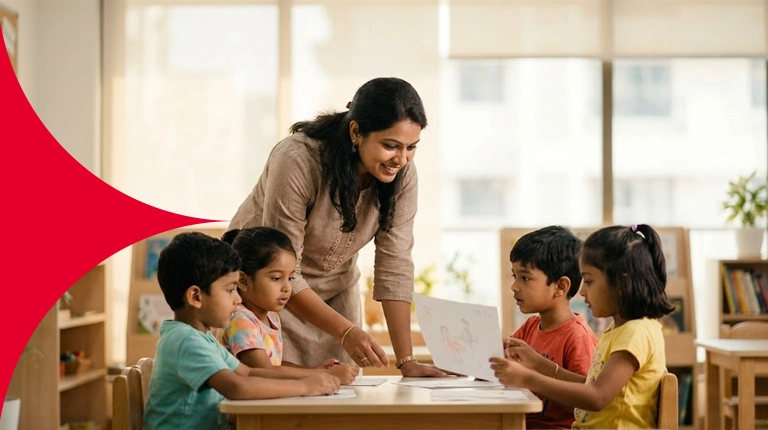Modelling Positive Behaviour in Kids: How It Shapes Young Minds at Radcliffe School
At Radcliffe School, we believe that education goes beyond academics. As one of the top schools in India, we understand that modelling positive behaviour in kids plays a crucial role in shaping a child’s values, emotional intelligence, and long-term success. It’s not just about what we teach—it’s about what we demonstrate every single day.
Why Modelling Positive Behaviour in Kids Matters
Children learn more from actions than instructions. The manner of children—how they speak, respond, interact, and behave—is a direct reflection of their everyday environment. That’s why our educators don’t just instruct; they lead by example.
Values like respect, empathy, responsibility, discipline, and perseverance aren’t just abstract concepts at Radcliffe. They are daily behaviours embodied by teachers, school leaders, and support staff.
How Radcliffe Models Positive Behaviour in Kids
We don’t rely on theory alone. Radcliffe implements structured and observable actions that help shape responsible, grounded individuals.
● Uniform Code of Conduct for Teachers
All Radcliffe branches follow a consistent teacher conduct policy that outlines respectful communication, inclusive classroom management, and calm conflict resolution. Children observe positive behaviour in real time and learn how to react with maturity.
● Teacher Training and Behavioural Reinforcement
Our educators undergo regular training on behavioural reinforcement techniques. This includes:
-
Managing misbehaviour without yelling
-
Using restorative practices
-
Listening patiently and building rapport
Such training ensures that children see adults handling challenges with grace—an important life skill.
● Routine Practices in the Classroom
-
Teachers greet students with warmth each morning—setting a tone of inclusivity.
-
Rotational classroom duties build a sense of responsibility among students.
-
Acts of kindness are publicly acknowledged, promoting humility and motivation.
● Parent-School Behavioural Alignment
To strengthen behaviour modelling, we regularly engage with parents. Activities include:
-
Behaviour-focused meetings
-
Open house events
-
Direct teacher-parent interactions
These sessions ensure a unified front between school and home—crucial for consistent behaviour modelling.
👉 Learn more about the benefits of parental involvement in education.
● Discipline with Dignity
Radcliffe believes in consequences that teach, not punish. When a child errs, we use empathy and redirection—not fear. This demonstrates that:
-
Mistakes are natural
-
Growth comes from learning
-
Emotional safety is key to development
● Leading by Example on Campus
At every Radcliffe branch, students witness adults being:
-
Punctual
-
Polite
-
Collaborative
-
Respectful
This subtle modelling of behaviour leaves a lasting impact on students far more than any lecture could.
Long-Term Impact of Modelling Positive Behaviour in Kids
When children grow up in a space where positive behaviour is constantly modelled, they:
-
Become emotionally resilient
-
Develop strong social skills
-
Grow into ethically grounded individuals
Whether it’s helping a peer, admitting a mistake, or taking initiative, they learn how to behave by observing—not merely by memorizing instructions.
Read about Value-Based Education at Radcliffe
Why Radcliffe School Leads in Behavioural Education
Radcliffe isn’t just another school. It’s a place that shapes people—focusing on the complete development of a child: in marks, in morals, and in mindset. Our approach makes us a top school for parents seeking more than just academic results.
Conclusion
At Radcliffe School, our belief is clear: education must shape character before it shapes careers. That’s why we actively and consciously model positive behaviour in kids—because raising good humans requires role models, not just rules.


